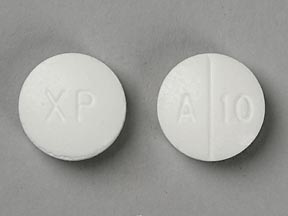Amicar Disease Interactions
There are 3 disease interactions with Amicar (aminocaproic acid).
Aminocaproic acid (applies to Amicar) myopathy
Major Potential Hazard, Low plausibility.
Skeletal muscle toxicity ranging from mild myalgia to rhabdomyolysis has been reported rarely during prolonged administration of aminocaproic acid. Therapy with aminocaproic acid should be administered cautiously in patients with or predisposed to myopathy. Clinical monitoring of muscle enzymes (particularly CPK) are recommended.
Aminocaproic acid (applies to Amicar) renal dysfunction
Major Potential Hazard, High plausibility.
Aminocaproic acid is primarily eliminated by the kidney. Approximately 65% of aminocaproic acid is excreted unchanged in the urine. Serum concentrations of aminocaproic acid can be increased in patients with renal impairment. Therapy with aminocaproic acid should be administered with extreme caution in patients with upper urinary tract bleeding. Glomerular capillary thrombosis or clots in the renal pelvis and ureters have occurred in patients with upper urinary tract bleeding during aminocaproic acid therapy. Clinical monitoring of renal function, clot lysis activity and fibrinolytic determinants (profibrinolysin, fibrinolysin and anti-fibrinolysin) is recommended.
Aminocaproic acid (applies to Amicar) thrombohemorrhagic disorders
Major Potential Hazard, High plausibility. Applicable conditions: Thrombotic/Thromboembolic Disorder, Disseminated Intravascular Coagulation
The use of aminocaproic acid is contraindicated in patients with active intravascular clotting. Aminocaproic acid should not be used in the presence of disseminated intravascular coagulation (DIC) without concomitant administration of heparin. Aminocaproic acid inhibits plasminogen activators and, to a lesser extent, plasmin activity, resulting in decreased fibrinolysis. Clinical monitoring of clot lysis activity and fibrinolytic determinants (profibrinolysin, fibrinolysin and anti-fibrinolysin) is recommended.
Switch to professional interaction data
Amicar drug interactions
There are 14 drug interactions with Amicar (aminocaproic acid).
More about Amicar (aminocaproic acid)
- Amicar consumer information
- Check interactions
- Compare alternatives
- Pricing & coupons
- Drug images
- Side effects
- Dosage information
- During pregnancy
- Generic availability
- Drug class: miscellaneous coagulation modifiers
- En español
Related treatment guides
Drug Interaction Classification
| Highly clinically significant. Avoid combinations; the risk of the interaction outweighs the benefit. | |
| Moderately clinically significant. Usually avoid combinations; use it only under special circumstances. | |
| Minimally clinically significant. Minimize risk; assess risk and consider an alternative drug, take steps to circumvent the interaction risk and/or institute a monitoring plan. | |
| No interaction information available. |
See also:
Further information
Always consult your healthcare provider to ensure the information displayed on this page applies to your personal circumstances.


